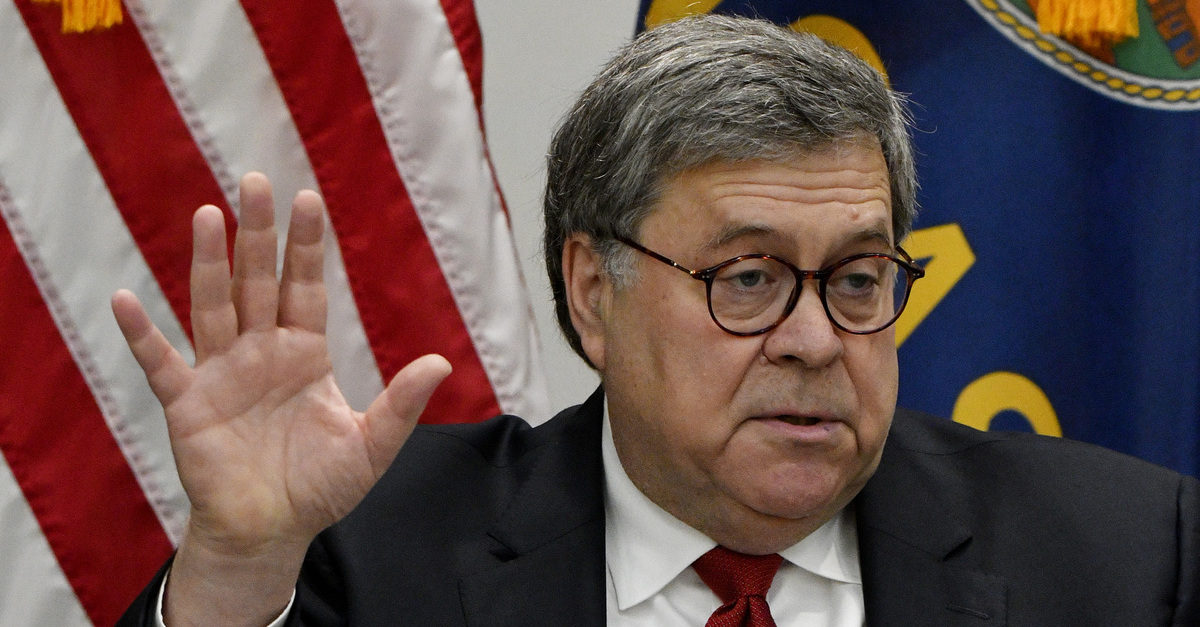
The U.S. Department of Justice’s Civil Rights Division on Friday filed a federal court brief in support of an Illinois Republican lawmaker’s lawsuit, which claimed Democratic Gov. J.B. Pritzker exceeded his authority under the state’s constitution when issuing an extension of his coronavirus-related executive order. The DOJ’s decision to file a “statement of interest” in a lawsuit that did not touch upon any questions of federal law left legal scholars and former department employees bewildered, with many criticizing the move as a purely political ploy to support President Donald Trump’s efforts to end statewide restrictions.
The case was initially filed by Illinois State Rep. Darren Bailey, a Republican who serves a rural southeastern Illinois district. In his complaint, Bailey claimed that the governor’s three coronavirus-related orders are illegal because, when combined, they have exceeded the 30-day limit prescribed by the state’s Emergency Management Agency Act (EMAA),
Bailey made national headlines earlier this week when he was thrown out of his own legislative chamber for failing to wear a face mask.
Likely seizing on Bailey’s recent notoriety, the DOJ filed its statement of interest in the case just two days after his ejection, heavily suggesting that states should bend to the stated policy goals of the federal government.
“It’s virtually impossible to convey just how deviant and inappropriate it is for the DOJ Civil Rights Division to file a brief such as this, most of which is on a pure question of state statutory law,” Georgetown University Law professor Marty Lederman wrote Friday evening. “To do so now, in order to help stymie a state’s efforts to stop the spread of a deadly contagion, is as brazen as anything I’ve seen since DOJ argued that the 2017 Congress & President Trump enacted a mandate to purchase health insurance.”
Lederman was far from the only legal scholar to express dismay at the DOJ’s filing.
Sasha Samberg-Champion, a former senior appellate attorney in the DOJ Civil Rights Division during the Obama years, was equally appalled by the “transparently political” move, which he said would only further degrade the department’s public standing.
“It’s hard to imagine briefs like this carry much influence with courts. The Civil Rights Division’s power to persuade has always come from its expertise and studied views about certain subjects. Why should the court care what it says about this?” he wrote. “Transparently political briefs like this only further degrade what little credibility DOJ has left. It will be a major undertaking to get courts and others to treat DOJ filings as in any way authoritative after what’s happened in this administration.”
https://twitter.com/ssamcham/status/1263989639217582084?s=20
Eric Columbus, an attorney and former senior counsel to the deputy attorney general in the Obama administration, said the DOJ appeared “desperate to get involved” in legal challenges to coronavirus restrictions (Law&Crime previously addressed ways in which Barr might “jawbone” the states into reopening for business).
“This is amazing — DOJ is so desperate to get involved in suits against COVID-19 restrictions that it files a statement of interest in a suit that — by DOJ’s own admission — involves no federal issues,” Columbus said.
Law professor and Obama administration Civil Rights Division alum Sam Bagenstos called the filing “absolutely extraordinary.”
Conservatives activists, lawyers and Illinois state reps, on the other hand, praised the move.
https://twitter.com/JakeRome3/status/1263993017679122433?s=20
The bottom line here is that the DOJ warned something like this might happen.
[image via Ed Zurga/Getty Images]